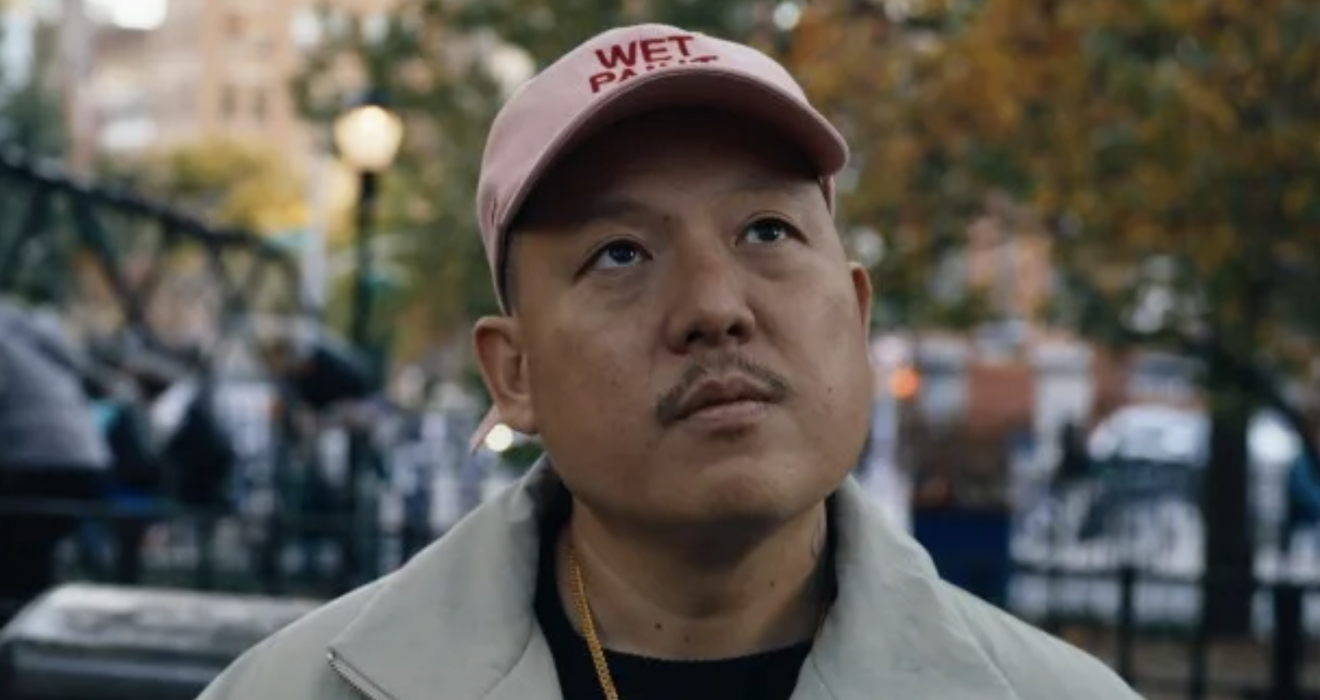“Vice is Broke” Review
Director: Eddie Huang Cast: Eddie Huang, Shane Smith, Lesley Arfin, David Choe, Chromeo, Gavin McInnes Distributor: MUBI Running Time: 104 min. MPAA: Not Rated
Eddie Huang used to work for Vice, the journalistic force that went from punk to bankrupt. Huang’s documentary on the fall of this company, Vice is Broke, was likely made with the intent to be more raw with the discussion. He opens his film by despising the talking heads on the subject who never set foot in the offices of the many writers, aiming to reveal all as the man within Vice’s golden era. But in his attempt to be most real with the subject, Huang’s film ultimately ends up saying little.
The film may present itself as about Vice, but Huang forces himself so deeply into this story that it becomes more autobiographical, watering down the story of Vice to be more affectionate than revealing. He does manage to cover some of the company’s history, from humble beginnings in 1990s Canada to its expansion into New York during the 2000s. Their appeal is explained by how the journalist organization created guides on topics like sex, going so far as to offer up informative and entertaining observations on women ejaculating. It attracted such talents as Anthony Bourdain and Spike Jonze, taking the magazine into the realm of video. But the party ended in the 2010s. Vice struck a deal with HBO, forcing contributors like Huang to realize how much different journalism is when you’re working for a conglomerate and can no longer write every idea you want, regardless of resources, research, and insight.
It’s amazing how Huang can’t recognize the problems that plague a Vice journalist trying to target Vice itself. The interview subjects are mostly former Vice contributors who reveal some stories, but also admit to the issues of a toxic workplace and edgy humor that has aged horribly. Rather than recognizing the paradigm shift in culture, most subjects struggle to grapple with what they tolerated before. One of the most telling admissions is that Vice wasn’t known for journalists who fact-checked their material, bound more by what sounds good on the page than by what is credible to the reader. A better filmmaker would’ve noticed how this concerning aspect plagues the current journalism market and what role Vice might’ve played in instigating it. But Huang seems to spend more time reminiscing than reevaluating with his colleagues, treating them less like subjects and more like friends at a reunion, memories too tender to ask anything more insightful than recollections.
This lack of insight becomes most concerning when Huang addresses former contributor/founder Gavin McInnes, the racist cut-up of the office, who transformed into a hate group leader after departing, establishing the white nationalist hate group known as The Proud Boys. Huang uses his softest kid gloves on McInnes, a man who spends the interview spouting hateful comments about how women shouldn’t work and that racists don’t exist. The tactic, I suppose, is that Huang won’t push back to give Gavin the reaction he wants out of offended people, but, also, Huang sure does spend his time speaking nostalgically about working at Vice and how the two of them performed at the same comedy club. That rosier past mutates the interview into one where Huang isn’t sure if Gavin is really a white supremacist or playing a character for attention. Characters don’t assemble a hate group whose rite of passage involves literal violence. Vice must’ve gifted Eddie some of the thickest rose-colored glasses to overlook that concerning development.
Vice is Broke is a documentary made by someone on the inside and never really left to see the bigger mess outside. True to the Vice format, Huang inserts himself so much into this film that the concerns seem less about what journalism has become and more about how not getting paid for his work. Issues of sexual harassment in the workplace and the bigotry born from Vice’s contributors are sidelined for rants about Huang’s creative differences over his show, Fresh Off The Boat, and how sloppy corporations are at stifling journalists who strive to be gonzo. A clearer head and unbiased eyes could likely trace the trajectory of journalism that Vice perpetuated, but Huang practically admits he’s too low on funds and too pissed at certain employees to take that much inventory. For one interview, he embraces a comment he heard once that he could’ve been Asian Guy Fieri. After putting on the costume and attempting a Guy impersonation, it’s pretty clear the bit isn’t working, misfiring as much as his attempt to say something about Vice beyond this barstool rant of a movie.

